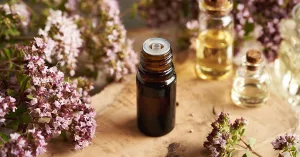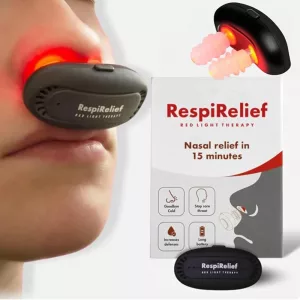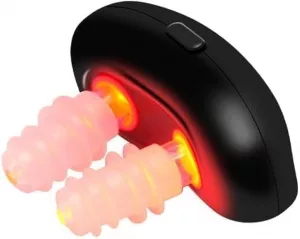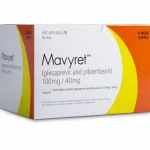A dry cough can stem from the flu, common cold, asthma, exposure to cigarette smoke, and other causes. Home approaches like honey, peppermint, or air cleaners might provide relief, but persistent coughing should be evaluated by a physician.
A dry cough, also known as an unproductive cough, differs from a wet or productive cough because it doesn’t expel mucus, phlegm, or irritants from the lungs or nasal passages.

Dry coughs can persist for weeks after a cold or flu. They may also be triggered by several conditions, including:
- postnasal drip
- asthma
- acid reflux or GERD
They can also be a long-term consequence of exposure to environmental irritants, such as tobacco smoke.
Dry coughs often cause considerable discomfort and can affect both children and adults. There are clinical options to ease them, but many home remedies can be equally useful in numerous cases.
Herbs and supplements
Home remedies for a dry cough aren’t universally effective; you may need to try several to discover what helps you best.
Additionally, not every remedy has undergone exhaustive research to confirm effectiveness. Some remedies are not suitable for infants or young children.
1. Honey
For adults and kids aged 1 and older, honey can help with daytime and nighttime dry coughing.
Honey has antibacterial qualities and can coat the throat, soothing irritation.
One study found honey to be more effective than dextromethorphan, a common cough suppressant, at reducing persistent nighttime cough in children.
Take honey by the teaspoon several times per day or stir it into tea or warm water.
To prevent infant botulism, a rare but serious condition, never give honey to a child under 1 year old.
2. Turmeric
Turmeric contains curcumin, a compound that may have anti-inflammatory, antiviral, and antibacterial effects. It can be useful for conditions including a dry cough.
Curcumin is absorbed more effectively when taken with black pepper. Mix 1 teaspoon of turmeric and 1/8 teaspoon of black pepper into a drink like cold orange juice, or prepare it as a warm tea.
Turmeric has been used in Ayurvedic medicine for centuries to address upper respiratory issues, bronchitis, and asthma.
Turmeric is available as a spice and in capsule form.
3. Ginger
Ginger offers antibacterial and anti-inflammatory benefits and has been shown to support the immune system and ease pain and discomfort.
Ginger appears in many teas; you can also make fresh ginger tea by steeping peeled or sliced root in hot water. Adding honey may enhance its effect on a dry cough.
Ginger is available in capsules or can be chewed raw to soothe a dry cough.
4. Marshmallow root
Marshmallow root is an herb commonly used in cough syrups and lozenges to calm a dry cough.
Research indicates it’s effective at soothing the throat and reducing irritation from a dry cough.
Marshmallow root may also possess antibacterial properties.
5. Peppermint
Peppermint contains menthol, which can numb irritated nerve endings in the throat and reduce the urge to cough, offering pain relief.
Peppermint can also ease congestion and is thought to have antibacterial and antiviral traits.
You can drink peppermint tea or suck on peppermint lozenges. Drinking peppermint tea before bed may help lessen nighttime coughing.
Peppermint essential oil can be used for aromatherapy as well.
6. Masala chai tea
Chai tea’s flavor has grown very popular in the U.S. In India, masala chai is traditionally used to treat sore throats and dry cough.
Masala chai features antioxidant-rich spices like cloves and cardamom; cloves may act as an expectorant.
Cinnamon in chai also provides anti-inflammatory benefits.
7. Capsaicin
Capsaicin, the active compound in chili peppers, has been shown to reduce chronic coughing.
Capsaicin is available in capsules, or you can prepare a tea by combining cayenne pepper hot sauce with warm water.
Cayenne is a chili pepper — add drops of hot sauce to warm water, tasting as you go to avoid excessive heat. You can steep whole chili peppers in warm water as an alternative.
Capsaicin remedies are not recommended for children.
Other home remedies to try
8. Aromatherapy with eucalyptus
Aromatherapy uses essential oils for soothing and therapeutic effects.
Eucalyptus essential oil may relieve a dry cough by acting as a decongestant. Add eucalyptus to a diffuser, spritz bottle, or inhaler, or place a few drops in hot water and inhale the steam.
Scenting your bedroom with eucalyptus might help you sleep better if nighttime coughing is disruptive.
9. Use a humidifier
Dry indoor air can worsen a dry cough. Humidifiers add moisture to the air, which often brings relief.
Humidifiers can open nasal passages, helping with persistent postnasal drip.
If your home is dry, run a humidifier in your bedroom to reduce coughing while you sleep.
10. Use an air purifier
Air purifiers can remove airborne irritants like dust and smoke and lower allergens such as pet dander and pollen.
Whether your cough is driven by environmental toxins or an underlying condition, breathing cleaner air can reduce throat irritation and the urge to cough.
11. Gargle with salt water
Gargling warm salt water soothes the discomfort and irritation caused by a dry cough and helps reduce bacteria in the mouth and throat.
Dissolve 1 teaspoon of table salt in a large glass of warm water, then gargle several times a day.
This method isn’t advised for young children who might swallow the solution.
If you wake with a sore throat from nighttime coughing, gargle with salt water after brushing your teeth to help numb and calm throat nerve endings.
12. Antitussive cough syrup
Antitussive medicines work by suppressing the cough reflex, reducing the urge to cough, which is especially helpful for dry coughs.
Some antitussives include codeine and require a prescription; others are OTC and commonly contain dextromethorphan, camphor, or menthol.
The American Academy of Pediatrics (AAP) recommends giving cough syrups only to children over age 6.
13. Cough drops
Cough drops are medicated lozenges made to lubricate and soothe irritated throat tissue. Ingredients and effects vary.
Some contain menthol, a numbing agent that decreases the desire to cough; others include ginger or eucalyptus.
Avoid giving cough drops to very young children and supervise older kids, as lozenges can pose a choking risk.
Where to buy these home remedies
Many of the remedies above — like honey or salt for gargling — may already be in your pantry, though you might need to purchase others. Below are links to commonly used items.
Herbs and teasSupplementsEssential oilsHome productsOther remedies»MORE:Get an online treatment plan for your cold, flu, or sinus infection in as little as 15 minutes with Optum Now Online Care.Optum Now is operated by RVO Health. By clicking this link, we may earn a commission. Learn more.
When to see a doctor
Dry coughs can continue for months and may be tiring and disruptive.
Most dry coughs resolve on their own. However, consult your healthcare provider if your cough is accompanied by other concerning signs, such as:
- difficulty breathing or shortness of breath
- wheezing
- chest pain
- back pain
- fever
- chills
Also seek medical attention if your cough worsens or does not fully resolve within 2 months.
»FIND CARE:Find a primary care doctor in your area today.Frequently asked questions
How do I stop a dry cough at night?
To lessen nighttime dry cough, try a teaspoon of honey or stir it into tea before bed. Peppermint tea or gargling with salt water may also provide relief.
See additional suggestions on how to stop coughing at night.
What is the fastest way to cure a dry cough?
There may not be a rapid cure depending on the cause. Many coughs outlast the infection that triggered them, and allergic coughs can persist. If home remedies fail, consult a doctor for stronger treatments.
Read more about treating a dry cough naturally and with medication.
The bottom line
A dry cough can be long-lasting and arise from a variety of causes. Fortunately, several effective home remedies can help ease your symptoms.
If your cough gets worse over time or doesn’t subside within 2 months, see a healthcare professional.
























Leave a Reply
You must be logged in to post a comment.